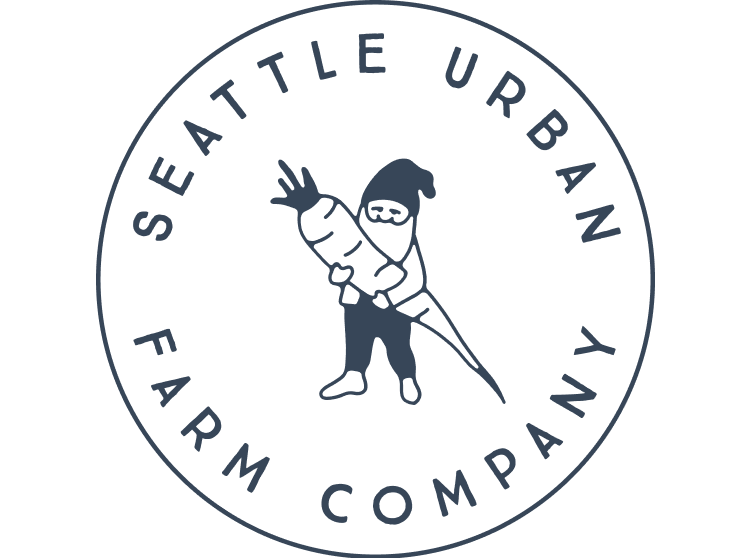Edible garden installations are a lot similar to an ornamental garden, only at the end of the project you don't just have a nice place to look at, you've invested in a productive space that keeps giving. As a builder of such gardens, there is a lot to take away from each unique project. It's hard work physically, it's challenging work mentally but it's rewarding work definitely.
One of the Seattle Urban Farm Company's (SUFCO's) signature features is raised garden beds. Raised beds are probably our most built and most essential back yard or rooftop creations. They provide a place for nutrient rich soil, easy access for cultivation and harvesting and fit seamlessly into the landscape. One of our favorite types of raised beds are made with Juniper timbers.
Here are a few reasons we like Juniper. We use 8 foot 6x6 rough cut timbers from Dunn Lumber in Seattle. They source Juniper from Eastern Oregon where this invasive species threatens to choke out Oregon's sagebrush ecosystems. In addition to protecting vital ecosystems, our use of Juniper is also protecting the environment in your backyard and all of Seattle. Unlike traditional pressure treated lumber, Juniper doesn't require a chemical infusion to keep it from rotting. Although the wood is protected, those chemicals slowly leech out into your soil and can be absorbed by the plants you grow and eat. Juniper on the other hand has naturally occurring oils that aren't harmful to your vegetable production but still protect the wood from pests and weather for several decades.
While Junipers' minimal environmental impact tops our priority list for its use, we also just plain love its rustic and earth centered appearance. Juniper adds character to every garden and looks especially good as a terraced growing space. Not only does Juniper make for a great garden bed, it is also a perfect practical solution for a retaining wall, steps or as a border for a walkway.
With all these benefits for using Juniper maybe you're wondering what its disadvantages are, if any. I can only think of two. The first is that they are truly rough cut pieces of lumber. Meaning not every 6x6 is exactly 6 inches by 6 inches. This makes it hard to fit pieces together without gaps. Some can also be twisted and misshapen, which makes tying them together with tight seams and making clean cuts difficult. But scrutinizing over the pieces we choose and having an eye for detail when putting them together has always turned out great looking beds. The second con is that 8 foot 6x6 timbers are heavy! Depending on the size of the bed or beds we could be lifting, cutting and moving dozens of sixty plus pound pieces of wood each day. On the flip side, we get really great sleep every night during construction and we're a lot stronger at the end of the project.
Juniper beds are a great option to consider in your next garden or garden upgrade. From the diversity of its use to the positive environmental impact, improving any aspect of a landscape can be accomplished with Juniper.
By SKIP MACKINTOSH
At SUFCo, Skip is part of our skilled installation team and spends most of his time building urban farms all around the Seattle area. In 2012 Skip worked on a small mixed organic vegetable farm in Oakville, WA. This experience served as a crash course in all aspects of small scale farming in Western Washington and was a springboard into his position as an installation crew member.
All photos by Hilary Dahl




